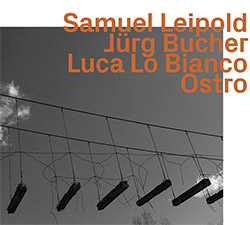
Exploring the trio format of clarinetist Jimmy Giuffre and his groundbreaking drumless trio, clarinetist & saxophonist Jürg Bucher and guitarist Samuel Leipold, both members of the Swiss Jazz Orchestra, joined with double bassist Luca Lo Bianco to perform this set of Leipold compositions, alongside Giuffre's "Afternoon" and "Three Clarinet Pieces I" by Stravinsky.
In Stock
Quantity in Basket: None
Log In to use our Wish List
Shipping Weight: 3.00 units
EU & UK Customers:
Discogs.com can handle your VAT payments
So please order through Discogs
Sample The Album:
Samuel Leipold-guitar
Jurg Bucher-clarinet
Luca Lo Bianco-double bass
Click an artist name above to see in-stock items for that artist.
UPC: 752156104223
Label: ezz-thetics by Hat Hut Records Ltd
Catalog ID: ezz-thetics 1042
Squidco Product Code: 32829
Format: CD
Condition: Sale (New)
Released: 2023
Country: Switzerland
Packaging: Cardboard Gatefold
Recorded at Zoo Studio, in Bern, Switzerland, in March, and November, 2021, by Felix Wolf.
"Analysing the consequences of break-time conversations of big bands for jazz history would be a worthwhile field of research. Individualists would meet to discuss projects next to the large ensembles and, ideally, also arrange to meet and try out new things. What if? Why don't we ...? We should ... And so it was with the Swiss Jazz Orchestra where Jürg Bucher plays the saxophone and sometimes the clarinet, and Samuel Leipold is the guitarist. They got talking about the music of the American Jimmy Giuffre, who played a major role in creating the Four Brothers sound with the tenor saxophonists Herbie Steward, Zoot Sims and Stan Getz in Woody Herman's band.
But it was as a clarinetist in a trio without drums where Giuffre wrote music history. The reason he gave for reducing the band to the essentials was that a stomping rhythm would make it impossible to hear the real sound of wind instruments or to concentrate on solo lines. In his trio he created an absolute equality of instruments, weaving together improvisation and composition. With this jazz chamber music, he built bridges between America and Europe, between cool jazz from the West Coast and contemporary European music, between solo and collaborative communication. It is due to Jimmy Giuffre 3's great skill that these new and more intellectual sounds beyond Black Power did not come off as cerebral and academically dry, but were so vital, spontaneous and ingenious that they found their audience. There was a lot going on in the jazz of the sixties, which without the new timbres of this swing-free and so non-ecstatic trio might have been conceivable, but would have been definitely poorer.
Sixty years have passed since then. Samuel Leipold and Jürg Bucher knew that you couldn't simply copy these historical opposites of a frenzied, explosive style of playing. But the idea of a trio consisting of clarinet, bass and guitar took shape, because they happened to find the ideal third member in the Lucerne-based Luca Lo Bianco from Sicily. He has many interests, plays everything from free music to world music to conducted improvisations with his orchestra, and has also worked with Gunther Schuller, among others.
Then, during the Corona months, there was the initiative by Tom Gsteiger and Wolfgang Zwiauer to organise small studio sessions instead of concerts in Bern. This was the initial spark. It soon became clear to the three musicians that they had found the ideal formation for Samuel Leipold's very melodic, sometimes mesmerising song-like compositions, which focus on listening to each other and interacting without resorting to clichéd phrases. What slides easily at first begins to blossom in its language full of details as you listen more closely, a language that isn't obtrusive, but has fine nuances and spontaneous developments instead. Out of the complex harmonic basic material they build a melancholy-grounded transparency that develops into an bewitchingly fragile beauty with ever new twists and turns that lead into realms beyond pure jazz improvisation.
This music thrives on the intuitive understanding of the three musicians, so that the question of what was composed and what was created in the moment soon becomes superfluous. "I don't tell anyone what they have to do, and it's not necessary with these two. We develop together how we want to play the pieces", Samuel Leipold explains. Named Ostro after the wind, this music has nothing to do with ego trips or the competitive one-upmanship of soloists. Here, it is all about the collectively created flow that is always balanced, full of finesse in the given context, and never embellished with spectacular ideas. It is about a lucid statement of emancipation from American role models. What distinguishes the European musicians from the heroes of the genres? What can they add to a history whose roots are elsewhere? Where is the space for experiences gained in their own cultural environment? Does it make sense to merely imitate the music of one's role models, though the Lucerne background is completely different? The answer lies in the question. "I grew up with classical music", Samuel Leipold says, "and with a different concept of music." Tapping into this is the key of achieving plausibility and relevance.
This balanced trio music is a sensual document of the artistic adaption and integration of these elements of one's own roots. The three musicians do not simply hook into the great narratives of jazz. They strive to distil from their experiences elements they deem viable enough to be worth pursuing. Their music is a new kind of chamber music which does not shout out its dissonances, but is calmer in a subtle way and still full of ever different breaks with conventions. Time und rhythm have to be renegotiated over and over again, so that this honesty can emerge from it.
What is new about this new generation of highly trained improvising musicians is that their worlds of experience are much more fragmented. Individual truths grow from an abundance of details. These in turn are in danger of being buried in the general information overload. How do you avoid this with your individual artistic aspiration? Craft can be learned and taught, statements cannot. Therefore it has to be about finding and asserting this "I" in the general chatter. It would be too easy to adopt preconceived opinions. But where is my place?
This CD is an impressive document of such a search for meaning and artistic legitimacy. It doesn't want to add something even louder to the supposedly spectacular. On the contrary: Here, it is about the subtle intimacy and emotionality of human relationships, about breathing as one. It is about being interested in each other beyond ever new superlatives. This is where the unobtrusive authenticity of this music comes from, what makes it special and thoughtful. You can sense that this is not a reproduction of the feelings and experiences of others, but that one's own pleasurable shared groove - with which an omnipresent state of excitement can be dimmed - is meant as seriously as it is carried out in a relaxed and playful way. It is no easy task to achieve a flexible balance between the musicians, to find an honest discourse beyond mere phrases, to discover and rotate around cores without falling into clichés. Here, one talks because one has something to say. Everything is based on the seismographic power of art, which can produce credible and convincing alternatives by reacting intuitively. It is about absolutely personal contributions, which are zoomed in on as if with a magnifying glass in order to let them develop their radiant power."-Ulrich Steinmetzger (translated by Friederike Kulcsar)

The Squid's Ear!
Artist Biographies
• Show Bio for Samuel Leipold "Samuel Leipold (1988) grew up in Näfels (Gl) in a musical family. Since his studies at the Lucerne University of Music with Roberto Bossard, Frank Möbus, Nils Wogram and others, Leipold has continuously developed into a differentiated, independent voice of Swiss jazz. In his music, the focus is on dealing with one's own artistic identity and the search for personal expression. Documented on the critically acclaimed solo CD "Viscosity" (QFTF 2021) and his current release "Ostro" (HatHut 2023), Leipold develops "a language full of details that is not obtrusive, but has all the more fine nuances and spontaneous developments." (U. Steinmetzger) In addition, Leipold is a versatile and active sideman: He is a member of the Swiss Jazz Orchestra, on whose two latest CDs he can be heard, plays freely improvised music with Ruedi Häusermann and Marco Käppeli, among others, is part of Martin Perret's band L'Anderer and deals with the standard repertoire of jazz in regular club concerts." ^ Hide Bio for Samuel Leipold • Show Bio for Jurg Bucher Jürg Bucher Jürg Bucher is a Swiss saxophonist and clarinetist born in 1967. He studied at the Swiss Jazz School in Bern with Andy Scherrer. He has played with such musicians as Daniel Schläppi, Colin Vallon, Dominic Egli and Domenic Landolf. He is known for the groups Andy Scherrer Special Sextet, Marius Bürgisser Quintet, Martin Streule Jazz Orchestra, Oli Kuster Kombo, and Swiss Jazz Orchestra. ^ Hide Bio for Jurg Bucher • Show Bio for Luca Lo Bianco "Born in Palermo (Sicily, Italy), from always a crossroads of cultures in the heart of the Mediterranean sea, Luca Lo Bianco is an eclectic bassists as well as a composer and bandleader with a personal sound and aesthetic. He started his journey into music studying electric bass and classic double bass and he graduated with the maximum grade in double bass in 1999 at the State Music Conservatory 'V. Bellini' of Palermo. Later he obtained the Master degree in Jazz Music Magna Cum Laude with a thesis entitled 'Musical syncretism in contemporary Jazz'. Luca's strong rhythmic approach and the lyricism combined with a personal sound define his playing and writing. His constant search for sounds in which dance, unpredictability, risk and curiosity coexist is deeply linked with his musical and human experiences. The music he plays speaks many languages and goes beyond genre boundaries. These concepts are well represented in some of the bands he founded or collaborated with such as Orchestra In-stabile DIS/accordo [O.I.D.], ranked second in the category Best Italian Orchestra in the 'JazzIT Award', the string quartet String Sharper, the contemporary jazz trio WON 3, the world music quintet Tammorra, the avant-garde surf trio Italian Surf Academy, or the music of the label he founded, Fitzcarraldo Records. In these years Luca has been established himself as an educator, teaching bass in various State Music Conservatory in Italy (Palermo, Messina, Pesaro), as well as a performer playingin numerous festivals and clubs all over the world (Japan, China, Austria, Switzerland, Norway, Portugal, USA, Malaysia, Spain, Holland, France, Slovenia, Germany, Italy, Turkey). He recorded more than 40 CDs playing in studio and live, with Bill Russo, Gunther Schuller, Mauro Pagani, Gregory Hutchinson, Paul Jeffrey, Adam Rudolph, Ferenc Nemeth, Jimmy Weinstein, Salvatore Bonafede, Fabrizio Bosso, Ettore Fioravanti, Dusko Gojkovich, Javier Girotto, Amy Denio, Alfio Antico, Stefano D'Anna, Riccardo Fassi, Michael Rosen and many more." ^ Hide Bio for Luca Lo Bianco
6/18/2025
Have a better biography or biography source? Please Contact Us so that we can update this biography.
6/18/2025
Have a better biography or biography source? Please Contact Us so that we can update this biography.
6/18/2025
Have a better biography or biography source? Please Contact Us so that we can update this biography.
Track Listing:
1. Zoncolan 05:30
2. Harmonium 06:08
3. Brandluft 05:41
4. Afternoon 03:50
5. Thanatos 06:57
6. Ondulation 04:31
7. Soma 03:44
8. Another Try 02:44
9. Three Clarinet Pieces I 02:21
Hat Art
Improvised Music
Jazz
Free Improvisation
European Improvisation, Composition and Experimental Forms
Chamber Jazz
Melodic and Lyrical Jazz
Trio Recordings
New in Improvised Music
Jazz & Improvisation Based on Compositions
Hat Hut Masters Sale
Search for other titles on the label:
ezz-thetics by Hat Hut Records Ltd.

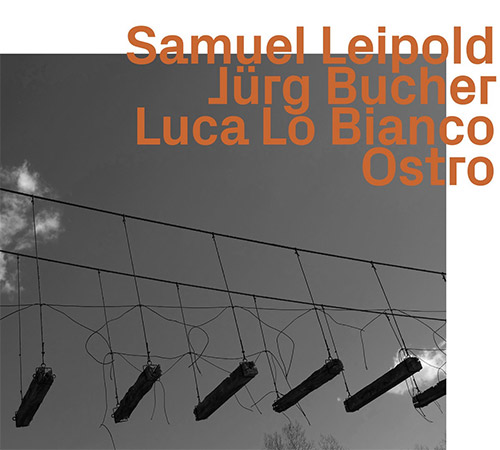
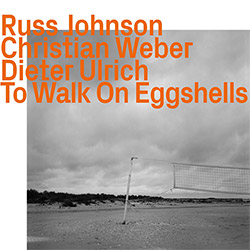

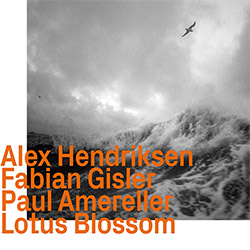

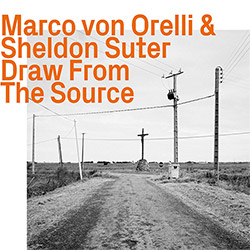
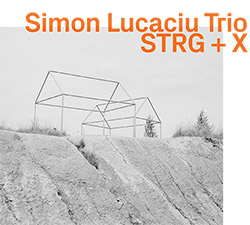

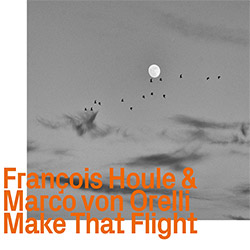
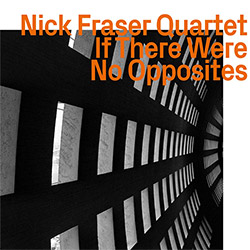
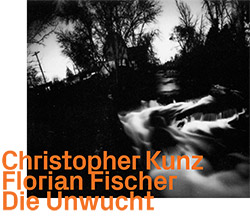

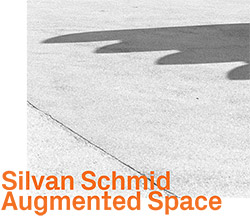
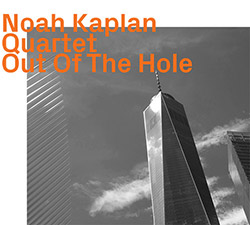
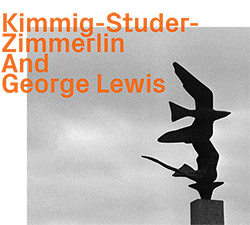

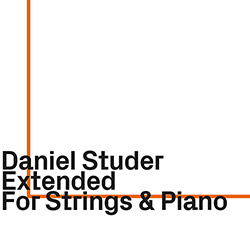
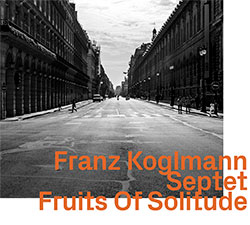


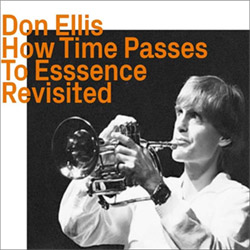

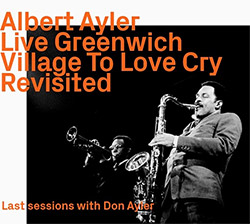
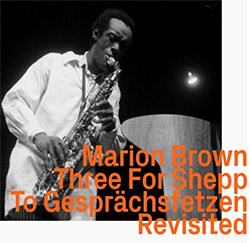
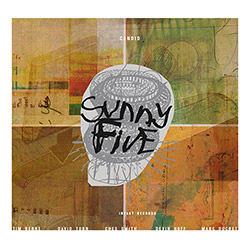

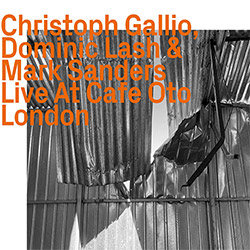




![BlueRing Improvisers: Materia [2 CDs]](https://www.teuthida.com/productImages/misc4/36513.jpg)








![Wheelhouse (Rempis / Adasiewicz / McBride): House And Home [VINYL]](https://www.teuthida.com/productImages/misc4/36462.jpg)
![+DOG+: The Light Of Our Lives [2 CDs]](https://www.teuthida.com/productImages/misc4/36009.jpg)


![Parker, Evan / Jean-Marc Foussat: Insolence [VINYL]](https://www.teuthida.com/productImages/misc4/36398.jpg)










![Deupree, Jerome / Sylvie Courvoisier / Lester St. Louis / Joe Morris: Canyon [2 CDs]](https://www.teuthida.com/productImages/misc4/36404.jpg)



![Eventless Plot | Haarvol: The Subliminal Paths [CASSETTE + DOWNLOAD]](https://www.teuthida.com/productImages/misc4/36232.jpg)










![Eventless Plot | Francesco Covarino: Methexis [CASSETTE + DOWNLOAD]](https://www.teuthida.com/productImages/misc4/36231.jpg)



![Das B (Mazen Kerbaj / Mike Majkowski / Magda Mayas / Tony Buck): Love [VINYL]](https://www.teuthida.com/productImages/misc4/36329.jpg)


![Eternities: Rides Again [CASSETTE]](https://www.teuthida.com/productImages/misc4/36247.jpg)
![Lopez, Francisco: Untitled (2021-2022) [2 CDs]](https://www.teuthida.com/productImages/misc4/36438.jpg)






![Money : Money 2 [2 CDs]](https://www.teuthida.com/productImages/misc4/35894.jpg)




![Klinga, Erik: Elusive Shimmer [VINYL]](https://www.teuthida.com/productImages/misc4/36258.jpg)
![CHANGES TO blind (Phil Zampino): Volume 9 - I Wave on a Fine Vile Mist [CD + DOWNLOAD]](https://www.teuthida.com/productImages/misc4/36061.jpg)

![Wallmart / Rubbish: Asset Protection [split CD]](https://www.teuthida.com/productImages/misc4/35900.jpg)


![+Dog+: The Family Music Book Vol. 5 [2 CDs]](https://www.teuthida.com/productImages/misc4/35897.jpg)
![Kuvveti, Deli : Kuslar Soyledi [CASSETTE w/ DOWNLOAD]](https://www.teuthida.com/productImages/misc4/36107.jpg)

![Brown, Dan / Dan Reynolds: Live At The Grange Hall [unauthorized][CASSETTE]](https://www.teuthida.com/productImages/misc4/36245.jpg)








![Palestine, Charlemagne / Seppe Gebruers: Beyondddddd The Notessssss [VINYL]](https://www.teuthida.com/productImages/misc4/36206.jpg)
![Palestine, Charlemagne / Seppe Gebruers: Beyondddddd The Notessssss [NEON GREEN VINYL]](https://www.teuthida.com/productImages/misc4/36207.jpg)

![Laubrock, Ingrid: Purposing The Air [2 CDs]](https://www.teuthida.com/productImages/misc4/35639.jpg)

![Yoko, Ono / The Great Learning Orchestra: Selected Recordings From Grapefruit [2 CDs]](https://www.teuthida.com/productImages/misc4/35841.jpg)









![Zorn, John / JACK Quartet: The Complete String Quartets [2 CDs]](https://www.teuthida.com/productImages/misc4/35609.jpg)

![Lonsdale, Eden: Dawnings [2 CDs]](https://www.teuthida.com/productImages/misc4/35480.jpg)



![Sorry For Laughing (G. Whitlow / M. Bates / Dave-Id / E. Ka-Spel): Rain Flowers [2 CDS]](https://www.teuthida.com/productImages/misc4/35985.jpg)

![Rolando, Tommaso / Andy Moor : Biscotti [CASSETTE w/ DOWNLOADS]](https://www.teuthida.com/productImages/misc4/36106.jpg)


![Electric Bird Noise / Derek Roddy: 8-10-22 [CD EP]](https://www.teuthida.com/productImages/misc4/35970.jpg)








![Elephant9 : Mythical River [VINYL]](https://www.teuthida.com/productImages/misc4/34624.jpg)



![Elephant9 with Terje Rypdal: Catching Fire [VINYL 2 LPs]](https://www.teuthida.com/productImages/misc4/35355.jpg)
![Deerlady (Obomsawin, Mali / Magdalena Abrego): Greatest Hits [VINYL]](https://www.teuthida.com/productImages/misc4/34876.jpg)







![Surplus 1980: Illusion of Consistency [CD]](https://www.teuthida.com/productImages/misc4/35069.jpg)
![Staiano, Moe: Away Towards the Light [VINYL + DOWNLOAD]](https://www.teuthida.com/productImages/misc4/35037.jpg)
![Coley, Byron: Dating Tips for Touring Bands [VINYL]](https://www.teuthida.com/productImages/misc4/17906.jpg)

![Lost Kisses: My Life is Sad & Funny [DVD]](https://www.teuthida.com/productImages/misc4/lostKissesDVD.jpg)